On United Nations Human Rights Day, international scholars and human rights activists called for a solution of the Tai Ji Men case.
by Daniela Bovolenta
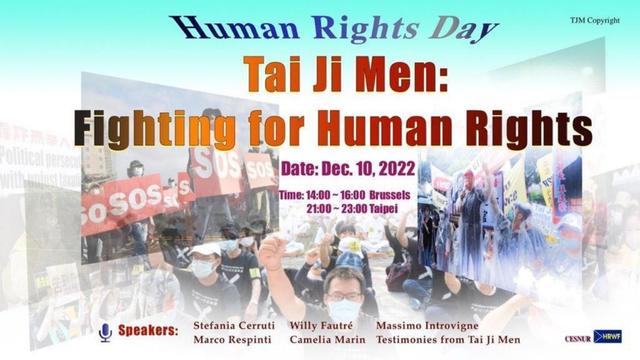
On December 10, 2022, United Nations Human Rights Day, CESNUR and Human Rights Without Frontiers organized one of their by-monthly webinars about the Tai Ji Men case, on the theme “Tai Ji Men: Fighting for Human Rights.”
Stefania Cerruti, external relations manager of MEDIS, the Major Emergencies and Disasters International School, introduced the webinar by stating that human rights are important in times of natural or human-made disasters, when violations of basic rights increase, for world peace, as there can be no peace without human rights, and for the Tai Ji Men case. Tai Ji Men and its Shifu (Grand Master), Dr. Hong Tao-Tze, played a unique role in promoting human rights internationally, showing their roots in conscience, and exposing corruption, which is now recognized as a main cause of human rights violations.
On the other hand, Tai Ji Men dizi (disciples), Cerruti said, are also victims of violations of human rights. She mentioned that on December 9 the Office of Human Rights and Transitional Justice of Taiwan’s Executive Yuan organized a seminar on preparation of Human Rights Day. Seminars and conferences are always useful, Cerruti concluded, but any credible discourse on human rights in Taiwan cannot ignore the Tai Ji Men case.
Cerruti presented a video with some comments on Human Rights Day by Volker Türk, an Austrian lawyer who has been appointed this year as the new United Nations High Commissioner for Human Rights. Türk expressed the hope that in 2023, when the world will celebrate the 75th anniversary of the Universal Declaration of Human Rights, the dramatic hiatus between the stated global affirmation of human rights and a reality where they are routinely violated in many countries may be somewhat reduced.
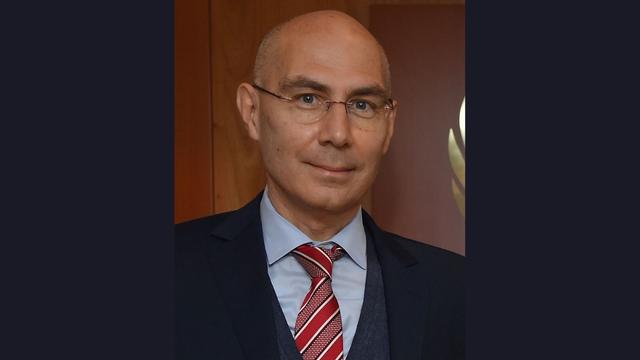
She then introduced the first two speakers, Marco Respinti, an Italian scholar and journalist who is the director-in charge of Bitter Winter, and Willy Fautré, co-founder and director of Human Rights Without Frontiers.
Respinti quoted an important book published in 2018 by Aaron Rhodes, a famous activist who serves as president of Forum for Religious Freedom Europe, called “The Debasement of Human Rights.” The book argues that everybody mentions human rights, and all seem to agree they should be respected. However, different states and groups propose different notions and lists of human rights, some of them in bad faith or fraudulently. The only objective notion of human rights, Respinti said, is one based on the nature of human beings, whose key features are reason and conscience.
None more than Dr. Hong, Respinti said, worked tirelessly to anchor the notion of human rights in the solid rock of conscience. This might have irritated some corrupt bureaucrats in Taiwan, Respinti suggested, and contributed to their persecution, that he characterized as “a great blow struck against all humankind.”
Fautré contrasted December 10, Human Rights Day, a day of hope, with December 19, a day of sadness that commemorates the raid against Tai Ji Men in 1996 by Prosecutor Hou Kuan-jen. It started the Tai Ji Men case and led to multiple abuses of human rights. Fautré listed twelve major violations of human rights by Prosecutor Hou: fabricating false accusations; spreading them through media slander; raiding premises of Tai Ji Men and individual dizi; detaining Dr. Hong; arresting Dr. Hong’s wife and two dizi; freeze the assets of Dr. Hong and his wife; prosecuting a case he knew (and courts up to the Supreme Court later confirmed) had no foundation; instructing tax collector Shih Yue-Sheng to falsely accuse Tai Ji Men of tax evasion, calling for the establishment of a fake association of Tai Ji Men “victims”; overstepping his authority to call for dissolution of Tai Ji Men; overstepping it again trying to have the water and electricity supplies to Tai Ji Men academies terminated; conspiring with the National Taxation Bureau to create tax bills against Dr. Hong based on accusations that the Supreme Court declared were false.
Fautré noted that Taiwan’s Control Yuan also investigated Hou and found him guilty of eight major violations of law. However, he was never punished, Fautré lamented, something that casts doubts on Taiwan’s stated undertakings to respect human rights.
Cerruti then introduced Camelia Marin, deputy director of the NGO Soteria International, who chaired the second session, featuring the testimonies of five dizi. Marin mentioned European cases where the human rights of groups accused of being “cults” were violated. She stated that there were many initiatives for Human Rights Day but this webinar was somewhat unique, because it showed the roots of human rights in conscience and harmony according to the spirit of Tai Ji Men. This spirit was illustrated in a colorful video about Tai Ji Men and its activities.
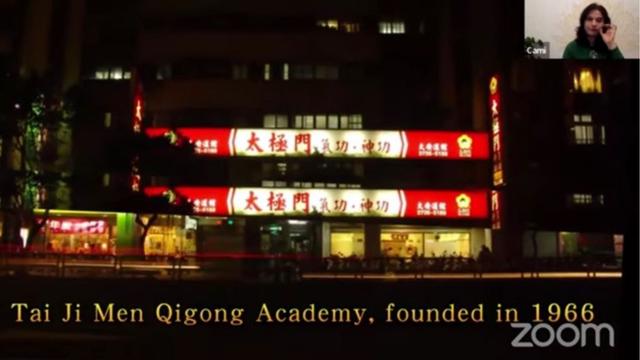
Tseng Ting-Yu, a senior specialist in the development of new businesses, noted that despite technological, social, and cultural progress the violation of human rights is still a widespread phenomenon. She was always interested in this issue, Tseng said, and she learned from Dr. Hong that the root cause of the problem is a disconnection from conscience, which may also affect political leaders. Tseng mentioned Dr. Hong’s decade-long efforts to bring to more than one hundred countries the message of conscience. She also noted the paradox that, while praised internationally and also in Taiwan for its efforts on behalf of conscience and world peace, Tai Ji Men is persecuted at the same time with false claims of tax evasion.
Jacklin Chang, a graduate student in Political Science, stated that since she was a junior college student, she was interested in the issue of transitional justice, i.e., how after a country has transitioned from a new-democratic to a democratic regime the new government deals with human rights violation perpetrated by the previous authorities. She mentioned the 2014 movie “Labyrinth of Lies,” which portrays the lonely fight of German prosecutor Fritz Bauer, who finally succeeded in persuading most Germans that pursuing transitional justice and prosecuting Nazi criminals even decades after their crimes was the right thing to do. Justice has no expiration date, Chang said, which means that justice for the past human rights violations of the Tai Ji Men case should now be granted, if Taiwan wants to honor its commitment to affirm transitional justice.
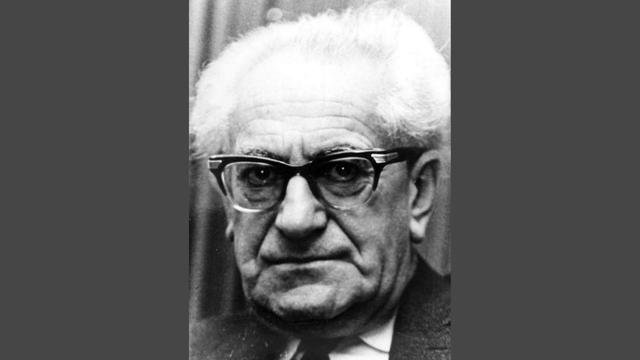
Huang Yu-Chun (Sylvia), a financial practitioner in a bank, reported how Tai Ji Men helped her with a difficult pregnancy, and later taught her how effectively fight corruption in her own work. In 2021, she received a certificate of appreciation from the Taipei City Government for successfully blocking an attempt at fraud and protecting her customers’ money. Unfortunately, she said, while acknowledging and honoring Tai Ji Men dizi as good citizens, Taiwan authorities still refuse to give them justice and rectify the fabricated tax case.
Frances Chen, who works as a finance officer, discussed the importance of self-confidence, which she learned from Dr. Hong and Tai Ji Men, in her work, and how these teachings where helpful when she had to confront a client who was both angry and important. She remembered Dr. Hong’s advice that “A quiet mind gives birth to wisdom,” and “Anger is the highest level of pollution.” Chen noted that these teachings have helped thousands of Taiwanese, not to mention those who have met Dr. Hong abroad, yet Tai Ji Men has been repaid with ill-founded tax bills and violations of its dizi’s human rights. She expressed the hope that Human Rights Day may be a day of soul-searching also for Taiwanese authorities, and they may finally solve the Tai Ji Men case.
Dave Kuo, who works as director of integrated circuit (IC) design, quoted the words of United Nations Secretary General António Guterres that the Universal Declaration of Human Rights is the most translated document in the world, but not the most frequently put into action. Kuo mentioned the serious human rights violations that occurred during the COVID-19 crisis, the war between Russia and Ukraine, and other international crises. When human rights are violated without blood and casualties we may believe violations are less serious, Kuo said. However, all violations should be stopped and all may cause more violence and suffering. This is certainly true, Kuo concluded, of the human rights violations in the Tai Ji Men case, which have now a story lasting for twenty-six years.

Massimo Introvigne, an Italian sociologist who serves as managing director of CESNUR and editor-in-chief of Bitter Winter, offered the conclusions of the webinar. He noted that this year Human Rights Day is celebrated during a global debate on human rights caused by events in China, Ukraine, and Iran. Regimes accused of gross violations of human rights defend themselves by accusing the democratic countries of trying to impose a notion of human rights that is not really universal but “Western.” They argue that Chinese, Russian, and Islamic cultures each have a notion of human rights different from the one prevailing in the West.
Introvigne argued that normally those who deny the universality of human rights are those who plan to deny them to their citizens. While the words “human rights” emerged in Europe in the 19th century, he said, the idea that human beings have inalienable rights inscribed in their very nature is much older, and has been recognized since the Middle Ages. Those who denied it wanted to give absolute power to political rulers, Introvigne added. This unwillingness to respect the universal human rights also emerged in the Tai Ji Men case, he concluded, despite Taiwan’s repeated statements that it wants to affirms the Universal Declaration of Human Rights, inter alia by incorporating the two main United Nations human rights covenants into its domestic law in 2009.
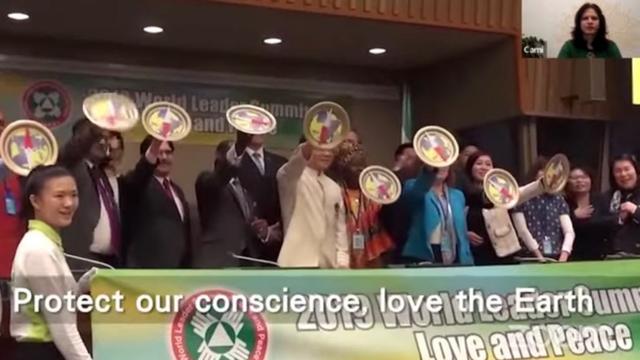
The webinar concluded with a musical video on human rights, where a song called for justice for Tai Ji Men and for all world citizens.
Source: Bitter Winter

